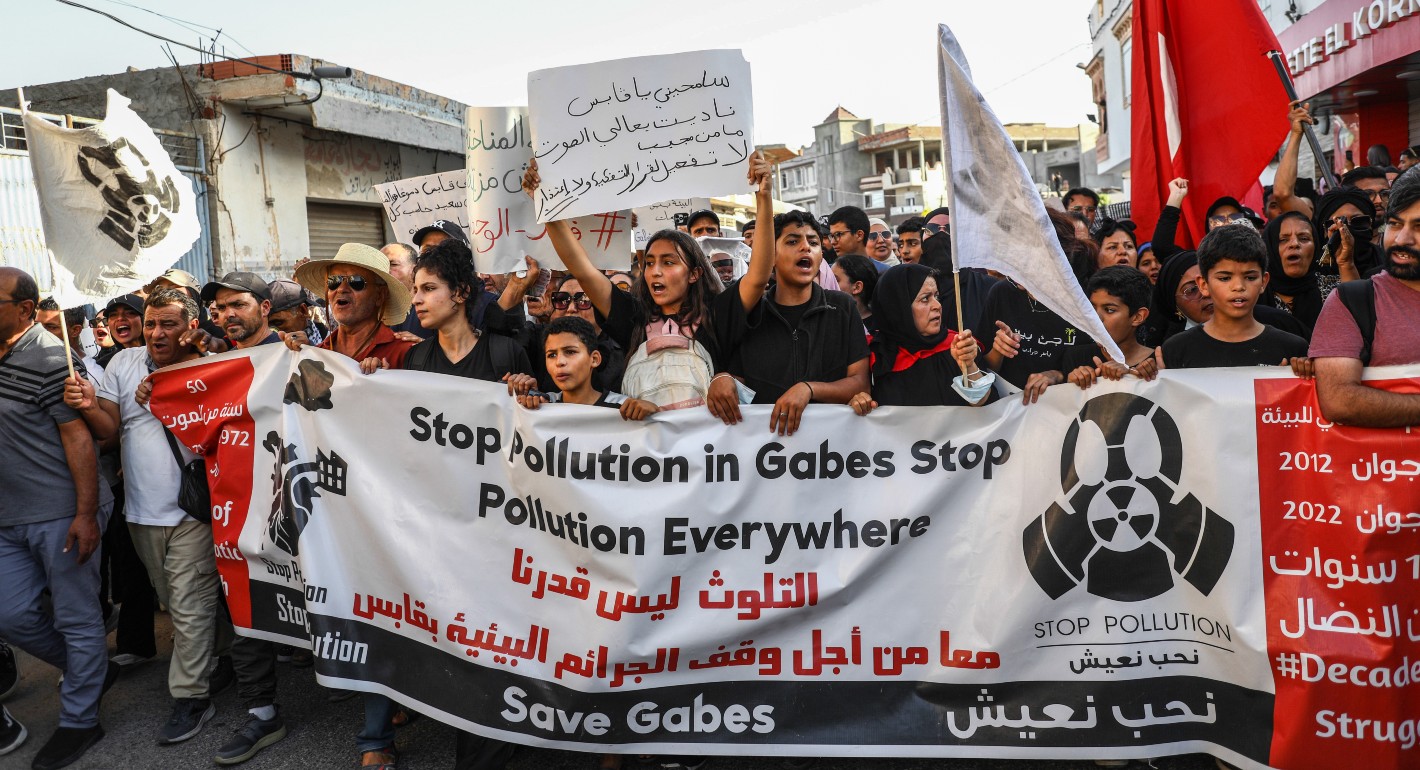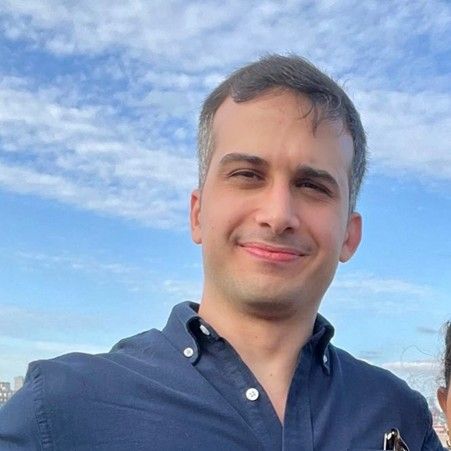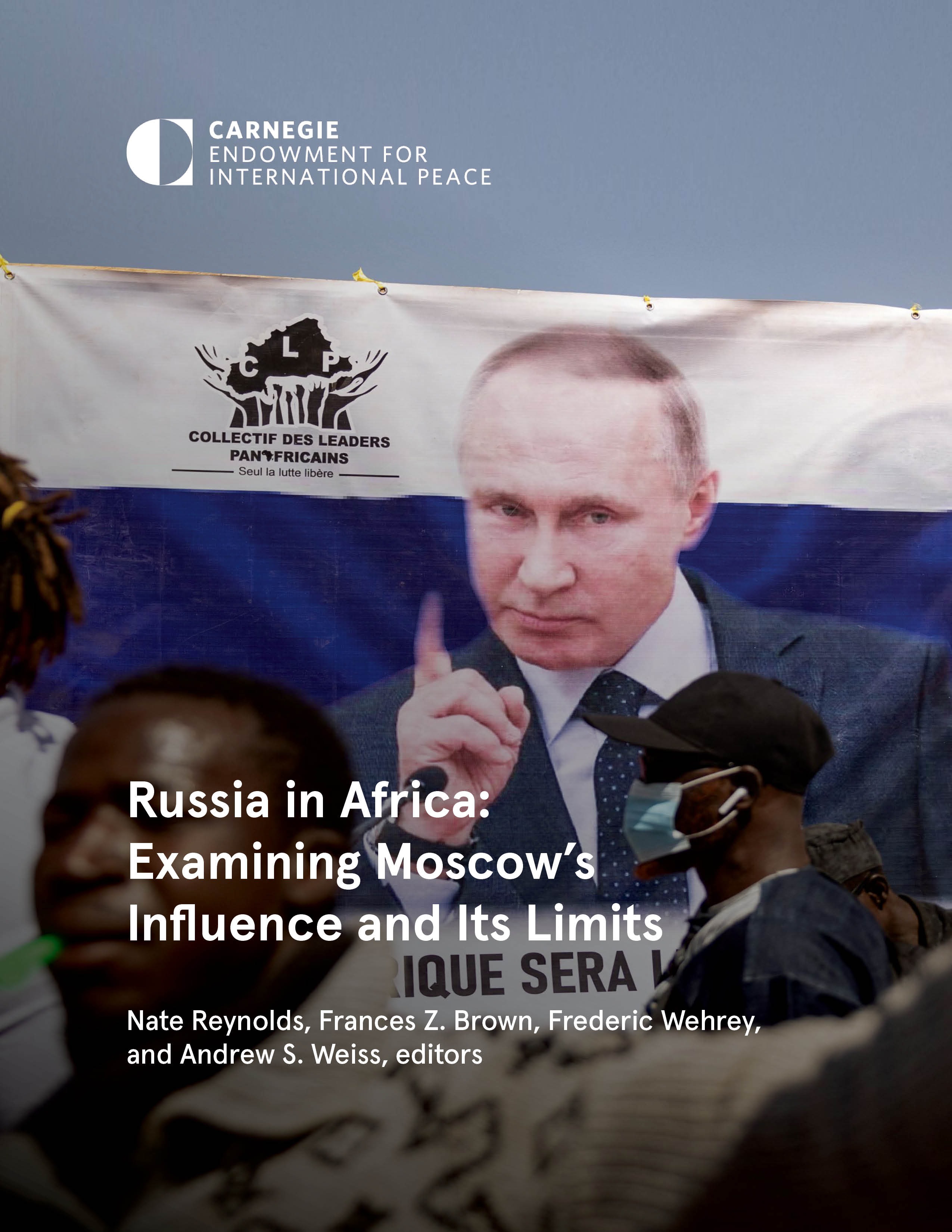Maha Yahya
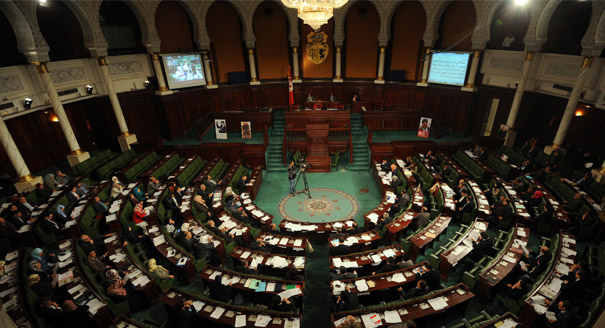
Source: Getty
Beyond Tunisia’s Constitution: The Devil in the Details
Despite its contradictions, Tunisia’s new constitution has paved the way for effective reform. But more work must be done to truly put the country on a stable, democratic path.
“The new constitution is a death sentence to the revolution,” said a youth activist at a recent meeting to discuss the challenges Tunisia faces three years after the uprising that overthrew then president Zine el-Abidine Ben Ali. “In some ways,” his colleague continued, “it is a betrayal of the principles of the revolution as the key demands of those who took to the streets were not included. We continue to be economically dependent on Europe, and the question of social justice is nowhere to be seen.”
This may seem like a harsh indictment of a process that has been widely lauded by the international community as a milestone agreement between political leaders who managed to forge a compromise in the interest of Tunisia’s future. But on the ground, many in Tunis, old and young, are despondent. Taxi drivers, storekeepers, university professors, and others view the constitution, which was promulgated by the National Constituent Assembly in January 2014, as the outcome of an elite political process that they do not trust and that has little impact on their socioeconomic conditions. For many of these ordinary Tunisians the political agreement that brought about the constitution only pays lip service to key demands voiced during the 2011 uprising and does little to address their grievances. Societal polarization, disaffection with the political process, the continued deterioration of living standards, and the emergence of political violence all remain central concerns.
The reality is more nuanced. The promulgation of a constitution that was arrived at through a process of negotiation between the different political parties in the country does represent a critical milestone not only for Tunisia’s political transition toward democracy but for the region as well. Yet, like in many other countries, the process had significant drawbacks, and more work remains to be done to truly put Tunisia on a stable, democratic path. The devil will be in the details of its application.A Hard-Won Victory
The process of drafting a Tunisian constitution, which defines the new social contract between the state and the citizens, was a long one. It began in 2011 after the election of a National Constituent Assembly on October 23. By June 2013, the assembly had issued the third constitutional draft for public consultation.
But a crisis spawned by episodes of political violence and socioeconomic grievances threatened the relatively peaceful trajectory of Tunisia’s transition. The country was taken aback by the assassinations of two political leaders of secular leftist parties—Chokri Belaid in February 2013 and Mohamed Brahmi in August 2013. Brahmi’s assassination triggered massive protests against the government, which was led by the Islamist Ennahda party, and it almost caused the dissolution of the Constituent Assembly after over 60 of the body’s members announced their resignation. The subsequent killing, on July 29, of eight soldiers who were hunting members of al-Qaeda along the border with Algeria, the biggest single loss of members of Tunisia’s military in recent history, further shocked the county.
The political deadlock was broken by the mediation of four key civil society organizations, collectively known as the Quartet—the General Union of Tunisian Workers (UGTT), the Human Rights League, the bar association, and the employers’ union. A road map was announced that included the promulgation of the final draft of the constitution at the end of January. The Ennahda-led government resigned as part of the road map, and a government of technocrats took over, opening the way for parliamentary elections that are to take place later in 2014.
To many observers in Tunis, this is a fragile political compromise that the main political parties, and Ennahda especially, were pressured to undertake by regional players and unfolding events. In particular, the “Egypt effect” resulting from the ouster of Egypt’s President Mohamed Morsi in July 2013 and the ensuing crackdown on the Muslim Brotherhood there impacted Ennahda’s position on key issues. For Rached Ghannouchi, the leader of Ennahda, the not-so-distant Algeria of the 1990s also affected the generally pragmatic political attitude of the party. In his reading, the majority win of the Islamists in Algeria in the December 1991 election was quickly and violently lost in part as a result of their rapid moves to impose their doctrines on society at a time when the media, the economy, and the army were still in the hands of a more secular opposition. He did not want Ennahda to repeat the same mistakes.
One Step Forward, Two Steps Back
For many of the youth I spoke to, the very process of drafting the new constitution was characterized by exclusive and uneven participatory mechanisms, particularly at the grassroots level. A limited number of national and regional consultations were held during the process. Tunisia’s key experts on constitutional law had a consultative role only, and the assembly was not obligated to take into account their comments or those of civil society organizations on the draft constitution. These practices encouraged a widespread perception that the process was monopolized by the few, and that view has undermined the sense of national ownership of what is considered by many to be the Arab uprisings’ primary success story.
Moreover, many of the youth also perceive the civil society groups that most impacted the process of drafting the constitution and that broke the political deadlock as affiliated with the Ben Ali regime. They argue that younger organizations and those that were more involved on the community level were excluded from this process.
This sense of disenfranchisement was reflected in a survey undertaken by the United Nations Development Program (UNDP) in 2012 among fifteen to twenty-nine year olds. A staggering 56 percent indicated they were completely unaware of the contents of the constitution, and another 30 percent responded they had only slight knowledge. Not surprisingly, around 45 percent indicated they did not feel “implicated in the process of elaborating the constitution.”
This feeling of disenfranchisement is in keeping with the larger socioeconomic conditions in the country. Ordinary Tunisians contend that politicians have done little to improve their plight in this area. The country has witnessed a downturn in growth and other economic, fiscal, and social indicators including increasing inflation, a devaluation of the Tunisian dinar, and an increase in the fiscal deficit from 1 percent of GDP in 2010 to 6.3 percent of GDP in 2012. This decline has been accompanied by increased unemployment and poverty. In 2012, national unemployment rates were estimated at around 19 percent. Among highly skilled youth (fifteen to twenty-nine years old), rates of unemployment reached more than 44 percent in 2010, and this figure is likely to have risen in the last three years. Not surprisingly, 82 percent of the youth respondents to the UNDP survey identified the reduction of unemployment as the most important agenda item for the government.
This situation is further compounded by profound regional socioeconomic inequities that emerged from decades of neglect and underdevelopment—and that were key triggers of the uprising. A regional breakdown indicates that the epicenters of the revolution, such as Kasserine and Gafsa, suffer from the highest concentrations of unemployment in the country as well as the highest poverty rates, reaching almost 29 percent.
These disparities have yet to be addressed. In fact, successive post-uprising governments in Tunis have continued with the same socioeconomic policies that generated inequities under the Ben Ali regime. They have neither offered an alternative vision for development nor attempted to address long-standing socioeconomic grievances in a sustainable manner. Rather, they have adopted short-term populist policies, such as the recruitment and reinstatement of tens of thousands of individuals (numbers vary between 16,000 and 30,000) into public service and the approval of generous public-sector pay increases, thus addressing pressing needs with political expediency.
As a result, Tunisia continues to be hit by diverse labor strikes in various cities, sectors, and ministries. There is also a visible deterioration of public services across the country. According to a member of Tunisia’s newly founded tripartite National Council of Social Dialogue, this is partly due to the political polarization of the country, which has affected public institutions at every level.
A People Making Their Own History
Clearly, there is much more that needs to be done to address the grievances that led Tunisians to rise up. But that should not obscure the fact that the new constitution has opened up considerable space for realizing the demands of the Tunisian uprising for “freedom, dignity, and justice.” In the words of Yadh Ben Achour, the head of the High Commission for Political Reform, the Tunisian Constitution enshrines “the protection of rights and liberties of citizens . . . most importantly freedom of conscience.”
The preamble of the Tunisian Constitution establishes a number of principles that are key for a democracy. It enshrines the notion of the civic state, the people as the basis of legitimacy, and the concept of pluralism. The neutrality of the state and good governance are singled out as the basis for political competition. Through the constitution, the state guarantees that basic freedoms, human rights, judicial independence, justice, and equality for all citizens, both male and female, in rights and obligations will be respected.
Furthermore, the political negotiations, tradeoffs, and compromises inherent to the process of drafting the document have resulted in a constitution of firsts with a number of landmark articles. This is most evident in the first chapter, which establishes the basic principles of the Tunisian Constitution. Article 2, for instance, identifies Tunisia as a “civil state, based on the principle of citizenship, the will of its people, and the supremacy of the law.” It cannot be modified in any future revisions of the constitution. Similarly, article 6 is significant for forbidding accusations of apostasy, the first such clause in a constitution of an Arab or Islamic country.
Subsequent chapters include a number of other groundbreaking articles. For example, article 46 both recognizes the acquired rights of women, thus closing the door to a future rollback of personal status laws, and makes parity the basis for women’s participation in the political and economic arenas—a first for any Arab country. It also commits the state to end all violence against women. And by stating that every Tunisian voter, both male and female, has the right to stand for election to the position of president, article 73 of the constitution also broke new ground for the region.
In addition, the constitution recognizes that political opposition is a key component of any democratic system (article 60) and that an independent judiciary is necessary to consolidate democratic rule. Different political parties fought long and hard to gain that recognition. In the process, the document commits the state to establishing a number of independent bodies, including a Constitutional Commission for Human Rights, a Constitutional Commission for Sustainable Development and the Rights of Future Generations, and a Constitutional Commission for Audiovisual Communication that will oversee the media.
Future Battlegrounds
While the civic nature of the state and the role of religion in public life seem to have been settled for now, negotiations among political parties have generated ambiguities and contradictions between some of the articles in the constitution. In the words of Ben Achour, these “mirror the contradictions within society.” They also delineate the contours of three key future political battlegrounds.
Perhaps the most urgent of these battles is the ongoing debate over the shape of the new electoral laws. This year will witness four key elections: for the presidency, the parliament, regional governorships, and municipalities. Rendering these elections even more critical are the power-sharing formula between the office of the president, the office of the prime minister, and the parliament and the role of this new parliament in upholding the basic principles of the constitution and translating the articles and commissions of the constitution into clear legislative frameworks.
The importance of the process of creating these legislative frameworks for implementing the principles of the constitution was highlighted in a leaked conversation between Rached Ghannouchi and Salafi imams regarding the absence of a reference to sharia as a legislative source in article 1 of the constitution. Ghannouchi justified Ennahda’s agreement to omit the reference as a tactical move in light of both the current balance of power between the different political groups in the country and the opposition’s control of key sectors, such as the media and the economy. Article 1 acknowledges the Islamic identity of Tunisia, which Ghannouchi argued was sufficient for the time being because he did not want Tunisians to split into pro-sharia and anti-sharia camps. He also asserted that the progressive transformation of Tunis’s personal status laws, among other issues included in the constitution, would be possible in the future because “the constitution does not make the law; the law is interpreted by the powerful.”
A second key issue is the struggle for freedom as other clauses are also open to interpretation. Article 6 both guarantees freedom of conscience and protects the sanctity of religion, a notion that has been used often to censor public intellectuals, artistic productions, and critics of religious orthodoxy across the world. In other words, the same clause that guarantees freedom of conscience also censors freedom of expression when it comes to religion. Some are concerned that members of the soon-to-be-elected parliament may seek to pass laws related to the role of religion in public life because they could not include those clauses in the constitution.
In the same spirit, article 39, which calls on the state to instill in the youth a sense of Arab-Islamic identity, renders the battle for control over Tunisia’s educational system even more ferocious than it has been in the past. Proponents of a civic-minded Islam (or Tunisia’s more liberal groups) are pitted against adherents to more conservative interpretations of Islam. Moreover, the indoctrination of children and youth at an early age undermines the principle of freedom of conscience and will in time erode the civic character of the state and the equitable rights of citizenship.
Another critical step in a sound political transition in Tunis is the expansion of participatory politics beyond the electoral to include the social, economic, and cultural spheres. While the rights to political participation and social justice are enshrined in the Tunisian Constitution, the mechanisms by which to ensure that those rights are guaranteed in practice are not clarified.
The devolution of political authority and developmental oversight to the regional level, which was mandated by article 47, opens the door to the direct participation and engagement of citizens and communities in the decisions that affect their lives. It also renders the role of regional governments and local municipalities quite critical. Both entities can play a central role in promoting development activities that are responsive to local needs while holding elected officials more accountable. The example of the Porto Alegre municipality in Brazil, where citizens participate directly in identifying their needs and deciding on the municipal budget for their town, is a case in point. This approach would include providing equal access to the full range of quality services as well as formulating local solutions to national challenges. In Tunisia, this may open up considerable opportunity for the youth as well as for civil society organizations and civic activists more broadly to claim a space and press forward on priority reform areas at the local and regional levels.
Similarly, if civil society groups and activists were included in the design and governance of the independent commissions identified in the constitution, such as the Commission on Sustainable Development and the Rights of Future Generations, they could play a critical role in advancing the cause of social justice. The experiences of Finland, Chile, and Peru with similar issues show how effective this approach can be.
What Next?
Constitutions are not stand-alone documents. Their adoption represents a key step in a large and complex political process that requires actively engaging citizens. Their success depends in large part on the willingness and ability of members of the political elite to work together across divides and build societal consensus on how to put principles into practice to address divisive issues and long-standing grievances. For Tunisians, this also means addressing the heavy legacy of the Ben Ali regime, including the need for transitional justice mechanisms, judicial reforms, and security reforms.
That the Tunisian Constitution has left much to be determined for the implementation phase leaves considerable room for backdoor politics. This could be both a good and a bad thing. While opening up space for the fundamentals of the new social contract to potentially be undermined, it also allows large sectors of society to act on their obligations as citizens by ensuring that the key principles of the uprisings are upheld and that the spirit of the constitution and its recognition of fundamental rights are not undermined.
For the government and the political elite, the search for consensus as a policy option should continue. Ensuring widespread societal engagement through effective participatory mechanisms and building consensus around the interpretation of key articles, particularly those related to the realization of social justice in dire socioeconomic circumstances, may further consolidate the fragile political peace. International examples of the state being obligated by the constitution to provide institutional support for the right to participate at every level, such as the constitution of Ecuador, may offer models for the government of Tunisia. This support can be established through mechanisms as diverse as public hearings, oversight committees, and consultative councils.
The youth of Tunis can also play a more central role in the transition by focusing on a cogent strategy for political struggle that includes broad-based platforms and coalitions. As one youth activist said, “a critical challenge for us today is how to become rooted in Tunisian society, build coalitions and find a real revolutionary alternative that is not about identity or ideology but about transforming society.”
Indeed, for all its inherent contradictions, the new constitution has paved the way for more effective reform. Ensuring its positive impact on the daily lives of citizens will be the true test of democracy.
The struggle for the future of Tunisia has only just begun.
About the Author
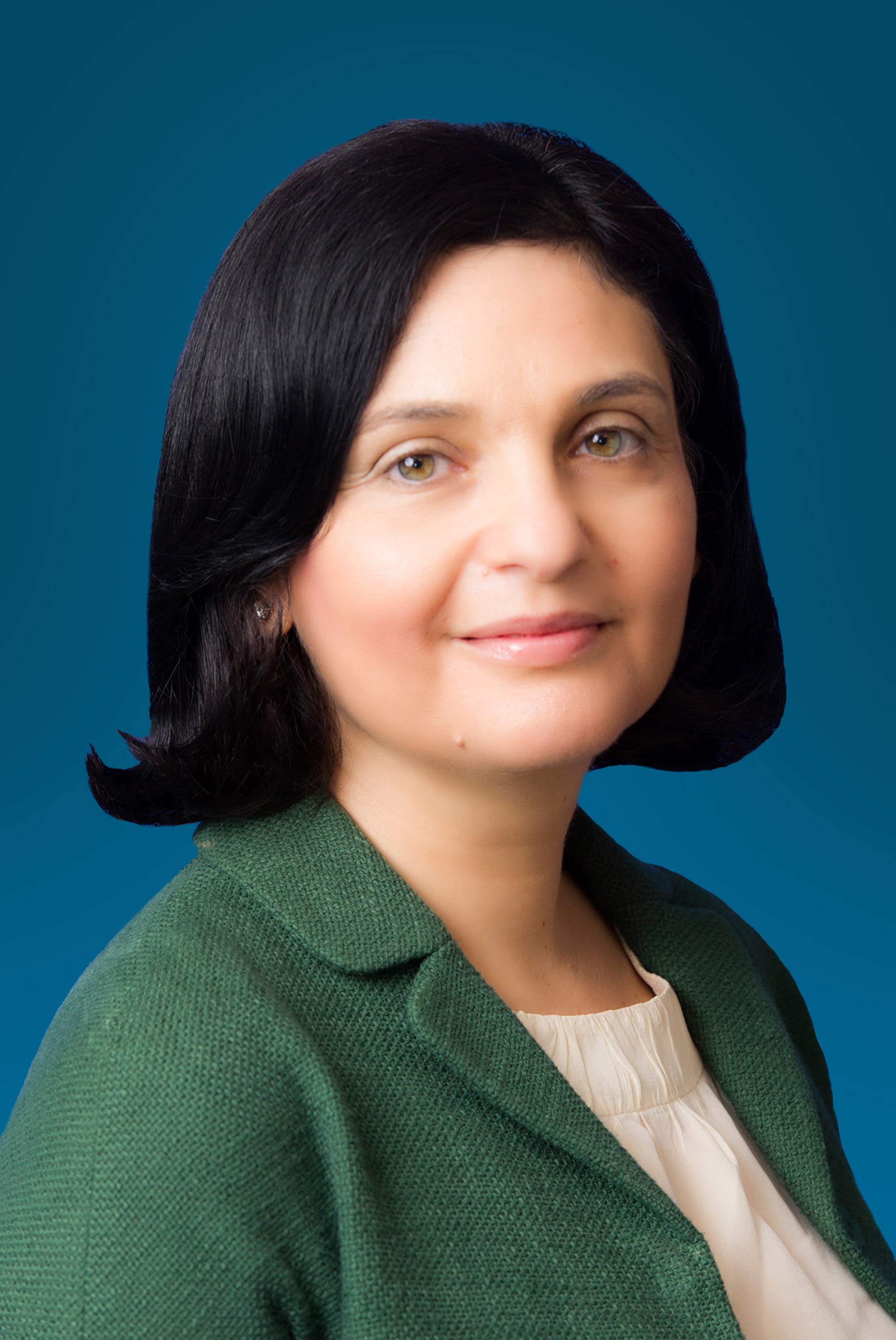
Director, Malcolm H. Kerr Carnegie Middle East Center
Yahya is director of the Malcolm H. Kerr Carnegie Middle East Center, where her research focuses on citizenship, pluralism, and social justice in the aftermath of the Arab uprisings.
- Israel Goes to War with IranCommentary
- Joseph Aoun Has Been Elected President of LebanonCommentary
Maha Yahya
Recent Work
Carnegie does not take institutional positions on public policy issues; the views represented herein are those of the author(s) and do not necessarily reflect the views of Carnegie, its staff, or its trustees.
More Work from Carnegie Endowment for International Peace
- The Kremlin Is Destroying Its Own System of Coerced VotingCommentary
The use of technology to mobilize Russians to vote—a system tied to the relative material well-being of the electorate, its high dependence on the state, and a far-reaching system of digital control—is breaking down.
Andrey Pertsev
- Indian Americans Still Lean Left. Just Not as Reliably.Commentary
New data from the 2026 Indian American Attitudes Survey show that Democratic support has not fully rebounded from 2020.
- +1
Sumitra Badrinathan, Devesh Kapur, Andy Robaina, …
- Civil Society Restrictions in North Africa: The Impact on Climate-Focused Civil Society OrganizationsArticle
For climate-focused civil society in countries like Morocco, Algeria, and Tunisia to be most effective, organizations should work together to develop networks that extend their reach beyond their local area and connect across borders to share best practices and amplify each other’s work.
Sarah Yerkes
- When Football Is More Than FootballCommentary
The recent African Cup of Nations tournament in Morocco touched on issues that largely transcended the sport.
Issam Kayssi, Yasmine Zarhloule
- Russia in Africa: Examining Moscow’s Influence and Its LimitsResearch
As Moscow looks for opportunities to build inroads on the continent, governments in West and Southern Africa are identifying new ways to promote their goals—and facing new risks.
- +1
Nate Reynolds, ed., Frances Z. Brown, ed., Frederic Wehrey, ed., …





